‘My Nazi father sent people to their deaths at Auschwitz – but I became a Jew’
After Bernd Wollschlaeger learned the uncomfortable truth he converted to Judaism and joined the Israeli Defence Force
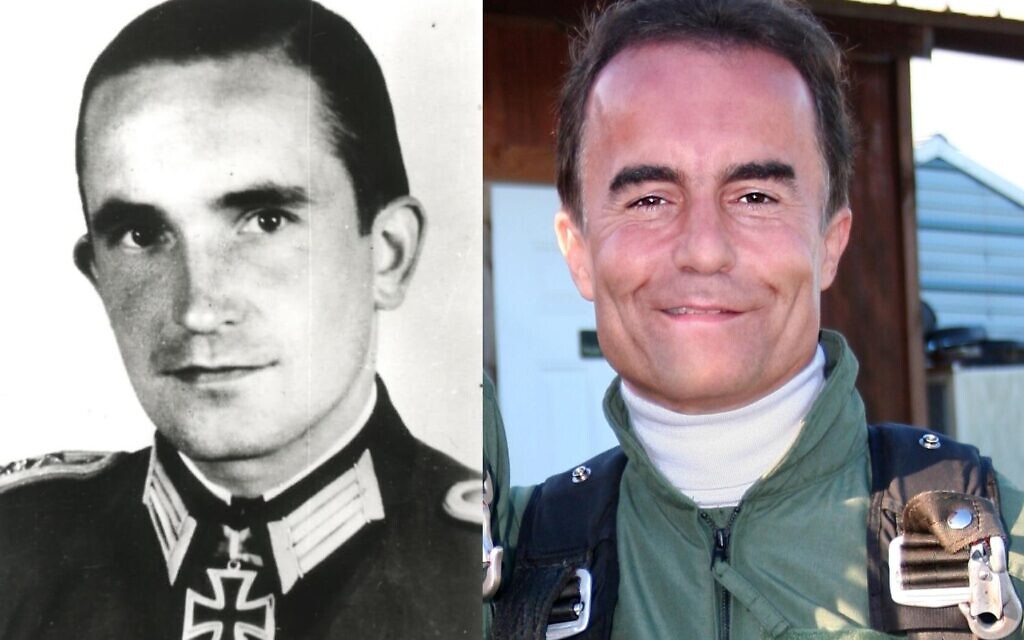
His father was a senior Nazi personally awarded the Iron Cross by Adolf Hitler – but Bernd Wollschlaeger converted to Judaism and served in the Israeli military.
Now he has spoken about his incredible story for the first time.
Growing up in Bamberg, in the German state of Bavaria, Bernd was taught the Holocaust was a lie and that his father, Arthur Wollschlaeger, was a war hero.
Get The Jewish News Daily Edition by email and never miss our top stories Free Sign Up
Arthur came from a long line of warriors and was personally decorated by the Nazi dictator for his actions on the Eastern Front, where he served as a tank commander under General Heinz Guderian.
But he did not get the glorious death in battle he expected: he was captured in 1945 and his only son, Bernd, was born in 1958.
“What he told me was a knight-in-shiningarmour story,” says Bernd, 62. “His war buddies who came to our house to celebrate the ‘good old times’ told me my father was a hero. But there were question marks in my mind that came up right and left.”
The first clue was right at home. In a remarkable coincidence of history, the Wollschlaegers lived in a house owned by the widow of Claus von Stauffenberg, the Germany army officer who tried to assassinate Adolf Hitler. Nina von Stauffenberg lived upstairs and Bernd, who would play with her grandchildren, lived downstairs with his family.
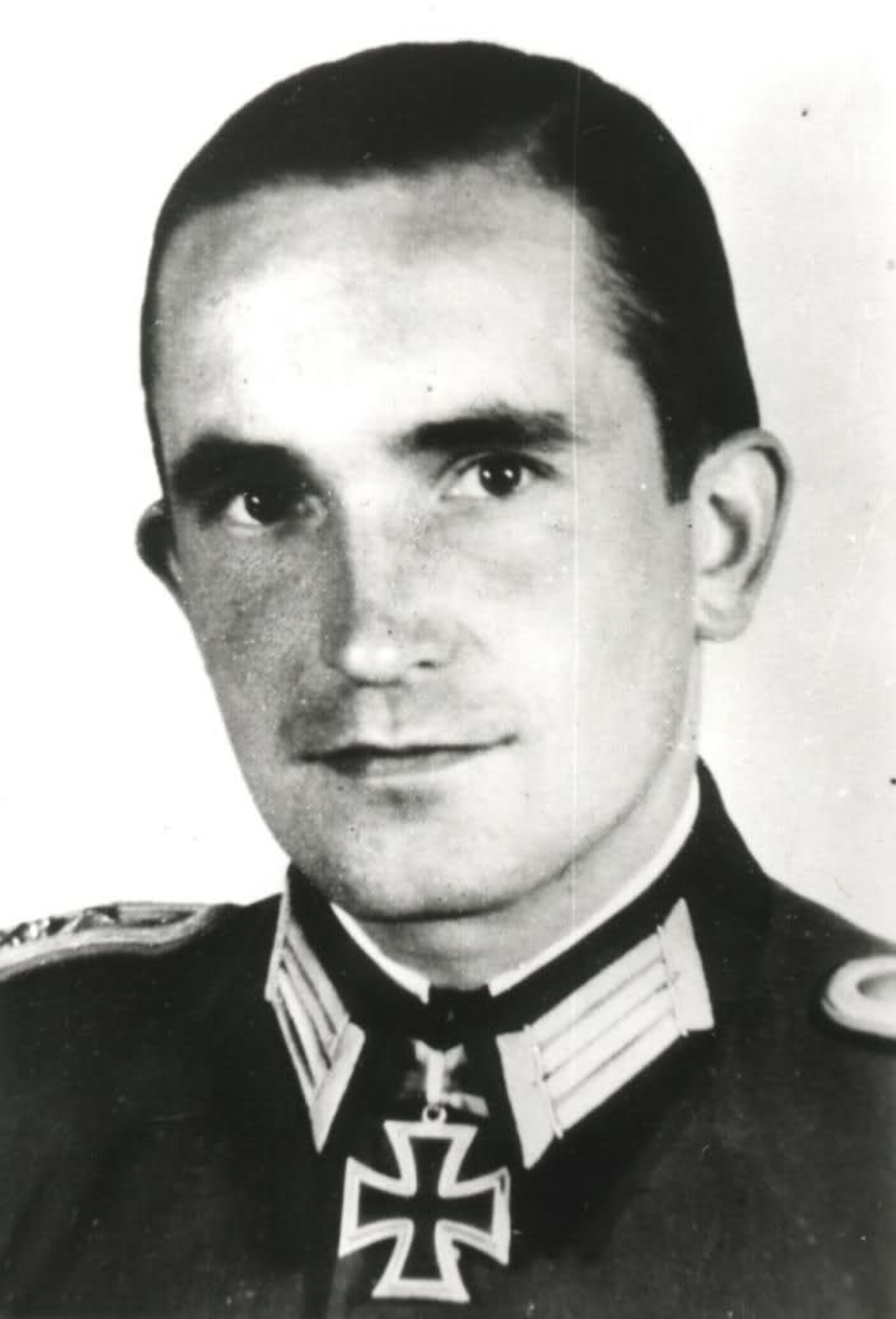
“My father referred to Claus as a ‘traitor’”, Bernd says. “But his wife, his grandchildren and the pictures I saw in her home upstairs suggested completely the opposite – he was a loving, caring man.
“I couldn’t intellectualise that yet but there was a question mark: ‘Why is my father saying that?’”
The turning point for Bernd came when Palestinian terrorists massacred 11 members of the Israeli Olympic team – six coaches and five athletes – at the 1972 Games in Munich.
“For the first time, at least in my life, the old wounds were opened and we were forced to deal with the past and why it’s such a big deal that Jews are being killed in Germany again,” said Bernd.
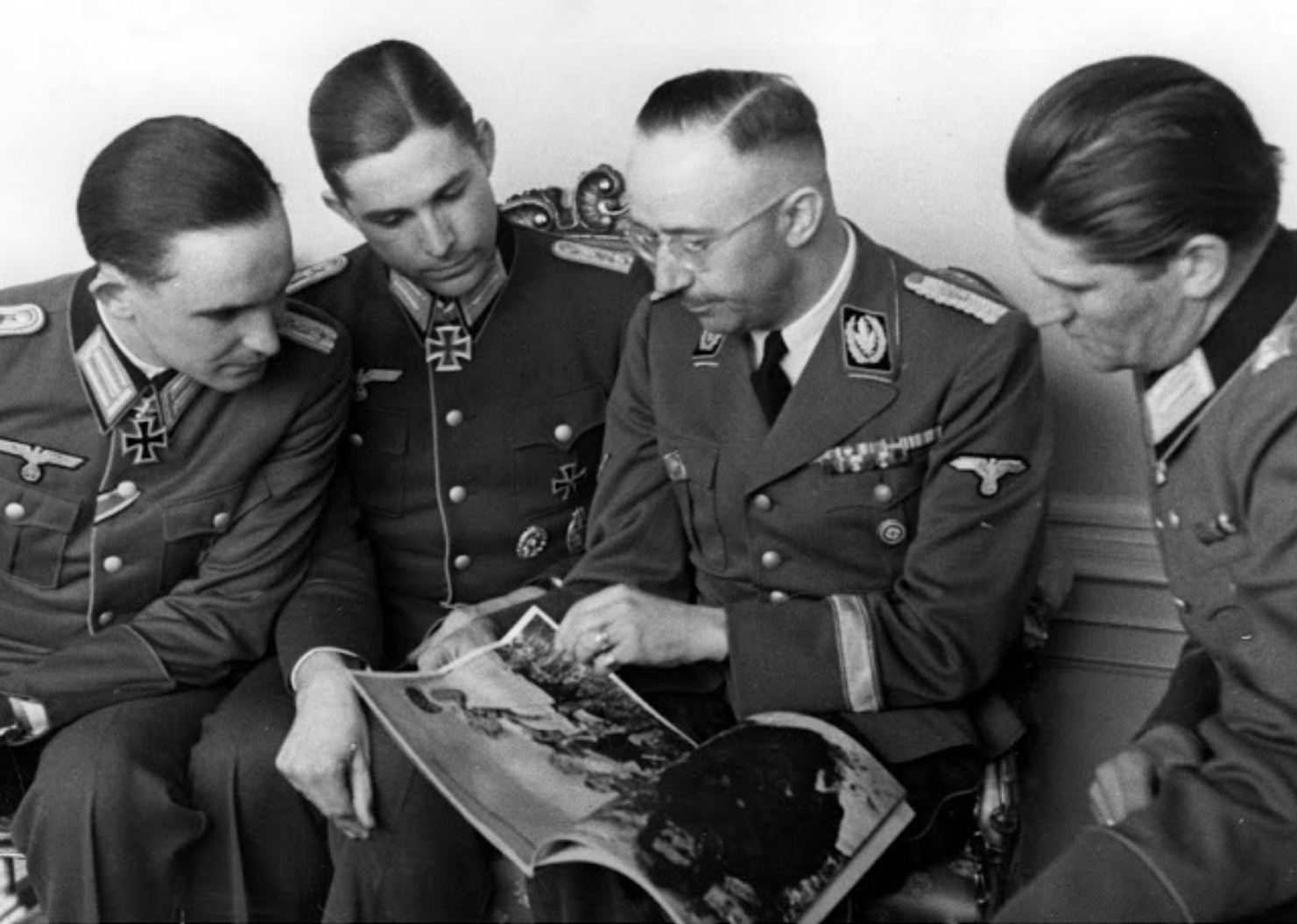
“I had to ask myself: if such a horrible thing had happened to the Jews why is my father not talking about it? Why is he so angry? He actually referred to the slaughter of the Israeli athletes, saying, ‘Look what they do to us again! They, the Jews, are tearing down our reputation to make us look bad.’”
The massacre raised another question – if Jews were being killed in Germany again, when had it happened before?
Bernd’s teachers told him the truth. “I was not only shocked to hear about it, I was perplexed because my father was a war hero, he must have known something,” recalls Bernd. “I asked him and he told me this was all a lie, that my teachers were communists and that the Holocaust never happened.”
When the 1978 TV series, Holocaust, was broadcast in West Germany a year later, Arthur dismissed it as “Jew propaganda”.
“I started to fill in the blanks, because I suspected there was a big gap – a dark hole that my father didn’t want to shed light on. I came to the conclusion that my father was a liar.”
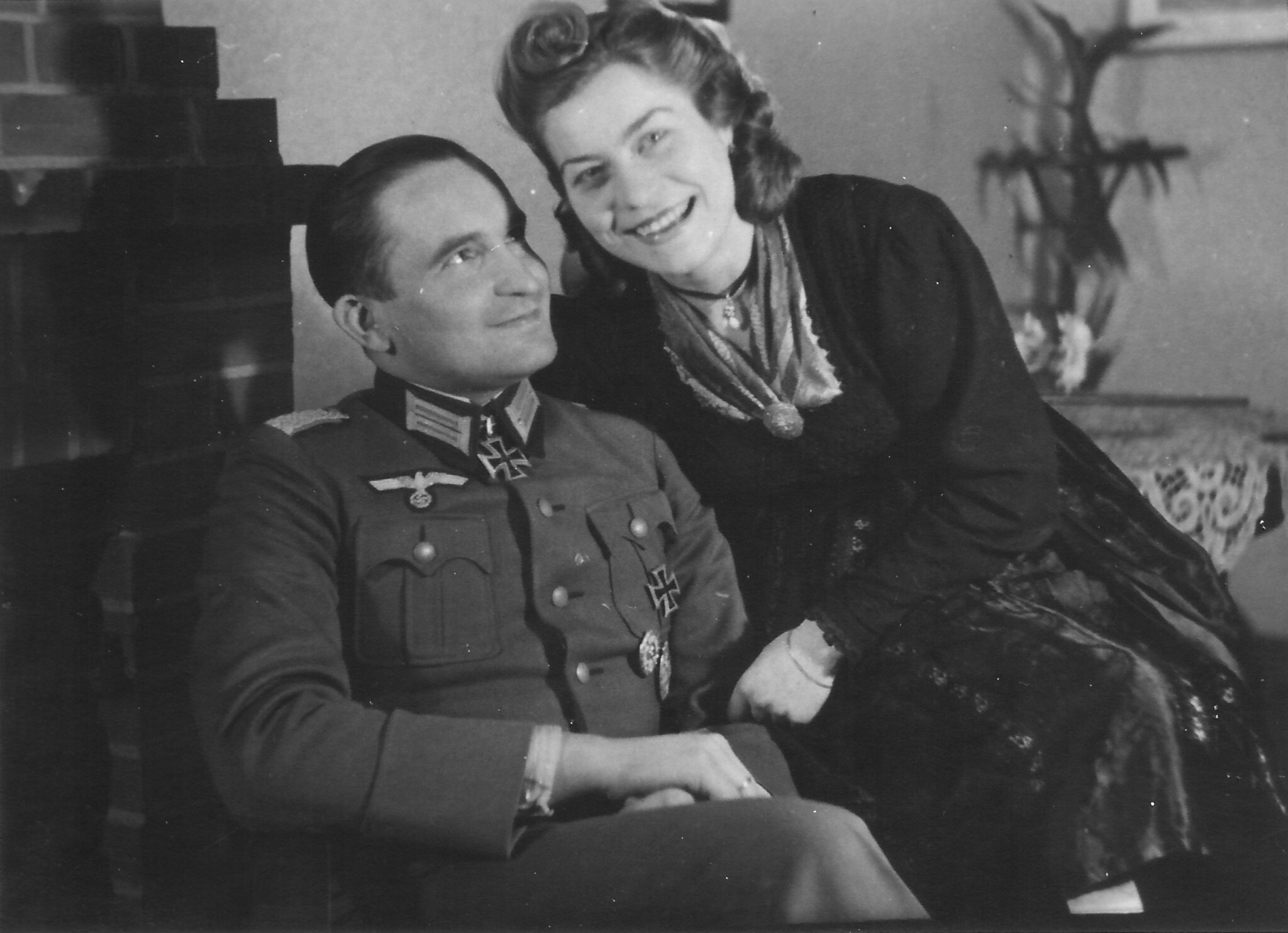
In later life, Bernd would be shown a picture of his father seated next to Heinrich Himmler, the leading architect of the Holocaust.
He would also learn that his father’s unit would terrorise Jewish villages in Russia, slaughtering the locals and using unwound Torah scrolls Torah as insulation for their tanks.
Furthermore, he discovered that his father had sent people to their deaths at Auschwitz.
“He knew exactly what Auschwitz was,” said Bernd. “He participated in the murder of Jews.”
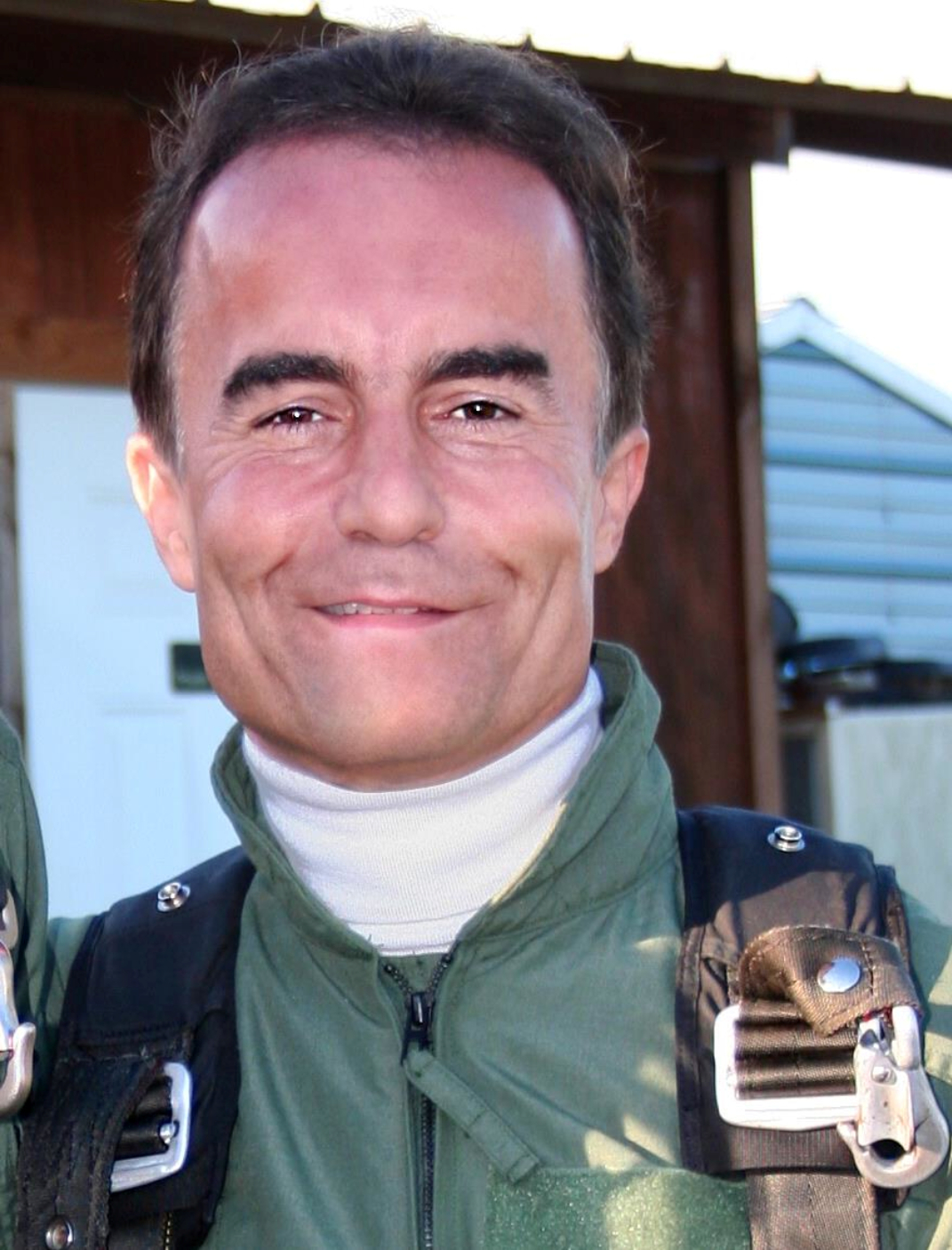
Determined to learn more about the people his father had persecuted, the young German asked his teacher, a former Jesuit priest, to help him.
The priest took Bernd to an annual interfaith summit organised by the church, designed to bring together Jews and Arabs from Israel, where he met an Israeli girl with whom he bonded. Three months later, he travelled to the Holy Land to see her, where her parents welcomed him into their tiny flat. It was a transformative experience.
“They hosted me like a long-lost brother,” said Bernd. “I asked the father how he learnt German and he showed me the number tattooed on his forearm and I was shocked. He didn’t blame me for that, he was a very, very nice man. He was in Auschwitz.
“He told me, ‘I don’t hate Germans, but I want to know if they teach you.’ And I said, ‘Probably not enough.’
“And he took me to Yad Vashem, the Holocaust memorial in Jerusalem, and there I realised the extent of the murder and I broke down emotionally. I cried.”
On his return to Bamberg, Bernd offered to help his local Jewish community as a shabbos goy, a non-Jew who performs activities prohibited on Shabbat. He says:
“I came every Friday and Saturday, and I did what I thought would be something that was important for me. And the closer I came to this family-of-choice – and I knew the liturgy, the language, the mannerisms – the more distant I felt from my family of origin and it came to a break-up.”
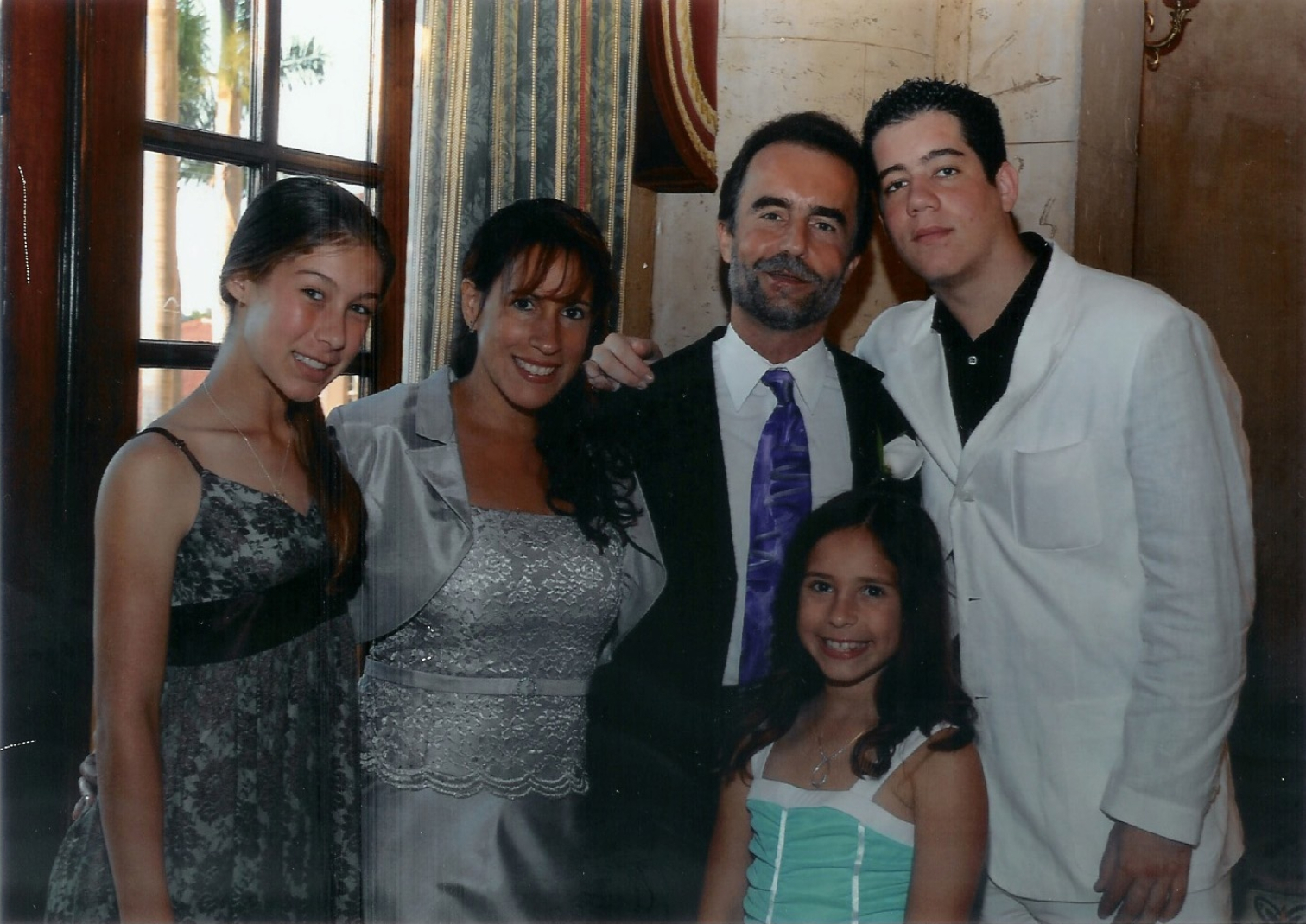
The decisive moment came when he was asked to say Kaddish at the graveside of an older friend who had died with no family.
The man had been a Sonderkommando during the Holocaust – a Jew who was forced, on pain of death, to assist in the murder of his own people – and felt deeply ashamed of it. “When I did that, I knew I crossed a line,” says Bernd. “I wasn’t a German anymore.”
He asked Itzhak Rosenberg, then the head of the town’s small Jewish community, to help him undergo conversion. His application was refused for two years, but eventually Bernd received religious instruction under Rabbi Nathan Peter Levinson.
He says: “I underwent an Orthodox conversion in Germany in November 1986 and it was a very, very difficult process – not an intellectual endeavour, but an emotional and spiritual endeavour.”
By that time, Bernd had also completed medical school and decided he would travel to Israel and serve in its army as a medical officer.
He saw his father one last time. “I went to say goodbye the night before I left. He didn’t want to see me. He called me a traitor. He was drunk like always, but he called me a traitor. And that was that.”
Arthur died in June 1987 and was given a full military funeral. His last words to his son were contained in a series of letters sent to him in Israel. It was 20 years before Bernd could bear to read them.
“They were very gutwrenching, angry and dismissive,” says Bernd. They were torn between loving me as a son and then losing me as a son. And yet in his will he stated explicitly that I was forbidden to attend his funeral – I wasn’t there anyway. I was also forbidden to carry his name and to approach his graveside and I was called a traitor.”
Bernd’s relationship with his mother, Elizabeth, also suffered. She had grown up an ethnic German in Czechoslovakia but lost both parents in the war.
Her son’s conversion made no sense to her. “She was shellshocked,” says Bernd. “She said ‘How can you identify with the victim [the Jews], when we were all victims?’”
Elizabeth developed dementia after Arthur’s death but visited her son in Israel once, in 1990. When they reunited, Bernd was wearing his army uniform.
He recalls: “She looked at me and she said, ‘I see Arthur in you, you became a warrior too.’” He tried to talk about what had passed between them, but it wasn’t to be.
“It was kind of a final way of saying goodbye, by being with her without having a profound discussion anymore.”
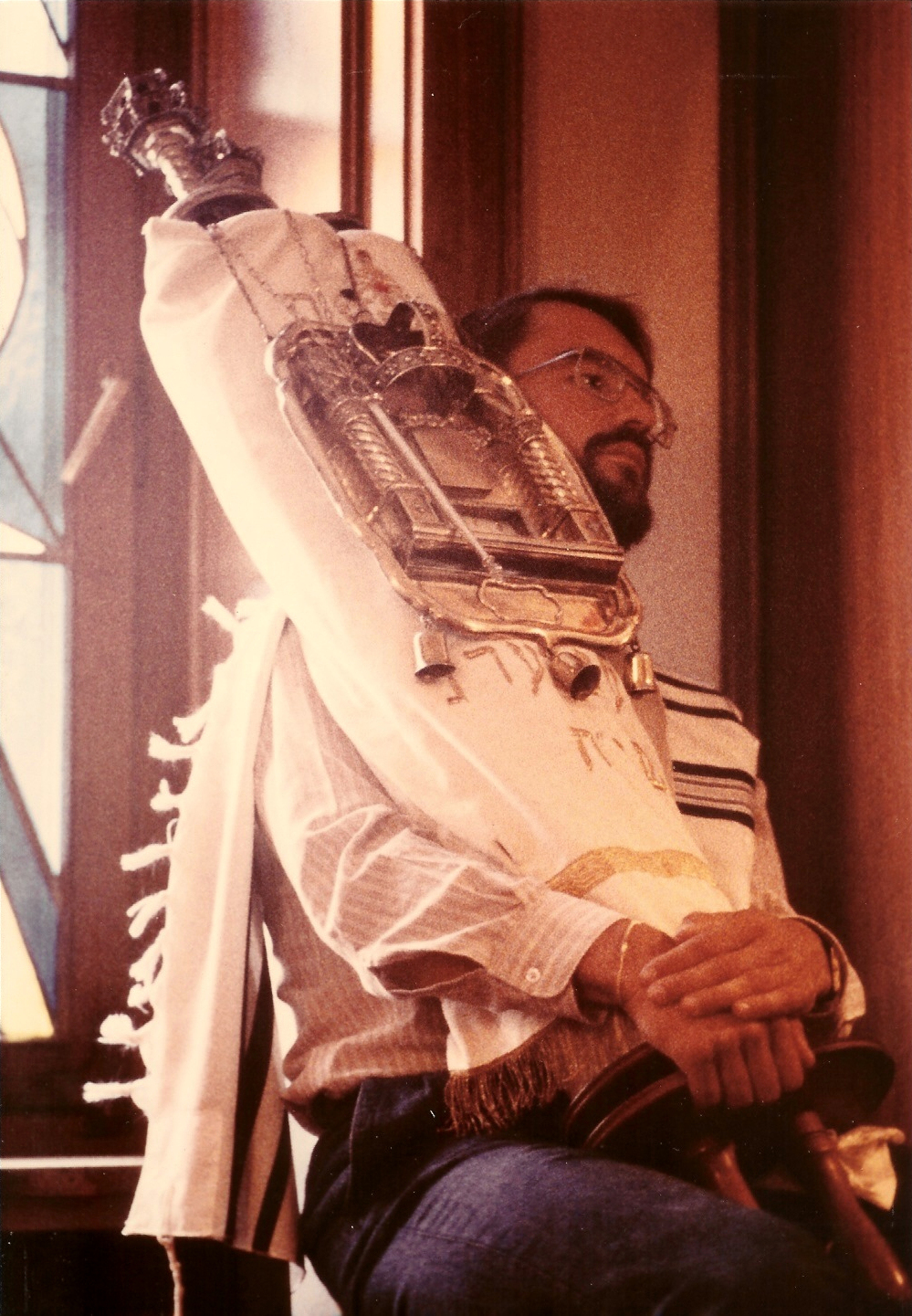
Although his father never recanted Nazism, Bernd, who recounts his spiritual journey in a memoir, A German Life, learnt to forgive him. “It would be too simple to say he was an unrepentant Nazi, but for him the world stopped in 1945.
“He went from being a nationally-celebrated hero to nothing. He would wear the Knight’s Cross, which was awarded him personally by Adolf Hitler, with pride on Christmas. That was my father.
“I forgave him for who he was – not for what he did to others. I teach my children if anybody is different, you need to embrace the difference and understand it. You cannot hate.”
Bernd left Israel in 1991, following his thenwife, an Israeli-American, back to the States before they divorced in 1995. Today, he is a family doctor in Miami, Florida, and has three children, Tal, 31, Jade, 26, and Natalia, 23 – all raised in the Jewish faith.
He remains in touch with his sister, Helga, 59, having reconciled with older sister, Christa, before her death in 2006.
Arthur Wollschlaeger was buried in Bamberg, a short distance from the Jewish section of the cemetery.

Thank you for helping to make Jewish News the leading source of news and opinion for the UK Jewish community. Today we're asking for your invaluable help to continue putting our community first in everything we do.
For as little as £5 a month you can help sustain the vital work we do in celebrating and standing up for Jewish life in Britain.
Jewish News holds our community together and keeps us connected. Like a synagogue, it’s where people turn to feel part of something bigger. It also proudly shows the rest of Britain the vibrancy and rich culture of modern Jewish life.
You can make a quick and easy one-off or monthly contribution of £5, £10, £20 or any other sum you’re comfortable with.
100% of your donation will help us continue celebrating our community, in all its dynamic diversity...
Engaging
Being a community platform means so much more than producing a newspaper and website. One of our proudest roles is media partnering with our invaluable charities to amplify the outstanding work they do to help us all.
Celebrating
There’s no shortage of oys in the world but Jewish News takes every opportunity to celebrate the joys too, through projects like Night of Heroes, 40 Under 40 and other compelling countdowns that make the community kvell with pride.
Pioneering
In the first collaboration between media outlets from different faiths, Jewish News worked with British Muslim TV and Church Times to produce a list of young activists leading the way on interfaith understanding.
Campaigning
Royal Mail issued a stamp honouring Holocaust hero Sir Nicholas Winton after a Jewish News campaign attracted more than 100,000 backers. Jewish Newsalso produces special editions of the paper highlighting pressing issues including mental health and Holocaust remembrance.
Easy access
In an age when news is readily accessible, Jewish News provides high-quality content free online and offline, removing any financial barriers to connecting people.
Voice of our community to wider society
The Jewish News team regularly appears on TV, radio and on the pages of the national press to comment on stories about the Jewish community. Easy access to the paper on the streets of London also means Jewish News provides an invaluable window into the community for the country at large.
We hope you agree all this is worth preserving.
-
By Brigit Grant
-
By Laurent Vaughan - Senior Associate (Bishop & Sewell Solicitors)
-
By Laurent Vaughan - Senior Associate (Bishop & Sewell Solicitors)
-
By Laurent Vaughan - Senior Associate (Bishop & Sewell Solicitors)
-
By Laurent Vaughan - Senior Associate (Bishop & Sewell Solicitors)





















